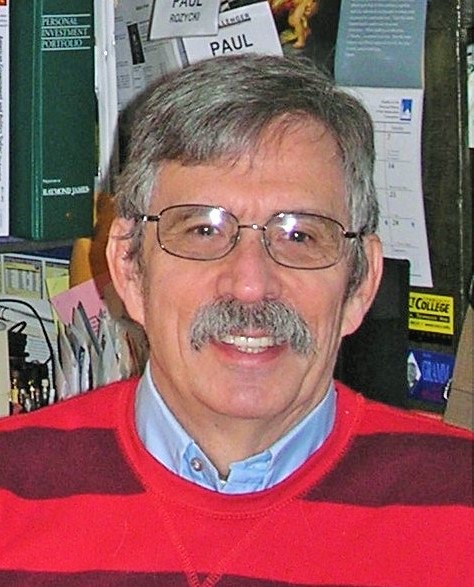By Paul Rozycki
In a nation of 330 million people, one person doesn’t make much of a difference? Right?
 Don’t tell that to the 29,999 people in Burton. In the last census, they were one person short of the 30,000 level for federal programs, and it cost the city a significant amount of federal funds.
Don’t tell that to the 29,999 people in Burton. In the last census, they were one person short of the 30,000 level for federal programs, and it cost the city a significant amount of federal funds.
By now, if you haven’t heard already, most local governments in Genesee County (and around the nation) are making a big pitch to make sure that everyone takes the time to get counted for the 2020 census. The cities of Flint and Burton, as well as Genesee County, have formed census committees to urge and assist local residents in responding to this month’s census.
As reported in last month’s East Village Magazine, the Mayoral Complete Count Committee is working with the Community Foundation of Greater Flint to make sure that every person in the city is counted.
This is critically important because according to the mayor’s office, only about 79 percent of Flint residents participated in the 2010 census, and the prospects are that the turnout may be even lower this year. Each person not counted results in a loss of $1800 annually. In 2010 Flint’s population was officially 102,400, but the expectations are that it will be significantly lower this year.
Why it is required
The census counts everyone living in all 50 states, Washington D.C. and five U.S. territories. The U.S. Constitution requires that the nation take a census at least once every ten years to determine how many members of the U.S. House each state deserves. This is particularly important for Michigan this year, since many fear that, because our population hasn’t grown much, we may lose one member of the U.S. House, leaving the state with only 13 House members. A few decades ago, Michigan had 19 members of the U.S. House.
Redistricting
In addition to determining how many U.S. House members a state deserves, the census is also used to draw new election districts for most other elected offices, from the state Senate, the state House, as well city council districts, and county commission districts.
By law, each election district must be nearly equal in population, and the census measures what changes have taken place in the last ten years. The census numbers are used to redraw every election district, and as Michigan begins to use its non-partisan redistricting committees next year, the results will be even more important.
Government funds
While apportioning congressional seats is the only constitutionally required reason for the census, over the years it has grown to serve many other significant purposes. Not only are members of the U.S. House based on population, but so is the allocation of government funds. The federal government allocates about $675 billion dollars nation-wide, based on census numbers. The census determines how over 100 federal programs are funded, including Medicaid, Head Start, block grants for mental health, road funds, and Supplemental Nutrition Assistance Program (SNAP).
In the city of Flint, each person who is not counted will mean an $1800 loss of federal funds per year. Over the next decade, for every person missed, that will mean $18,000, less for the city of Flint, to pay police officers, fire fighters or repair roads. In a recent press conference, Mayor Sheldon Neeley said that over 20 percent of the Flint’s population wasn’t counted in the last census, and the prospects looked even more daunting this year. Similar challenges apply to each and every governmental unit in the county. As the city of Burton learned, those funds are often applied to specific population categories, i.e. cities of 10,000, 30,000, or 100,000. If you fall one person short, you qualify for fewer dollars.
Community and business planning
The data from the census is used by local governments as they plan for roads, schools, sewers, police and fire protection. Businesses use the census to decide where to build shopping centers, hotels, factories, and restaurants.
It is a snapshot of the local population and tells both governments and businesses if they need more kindergarten classrooms, or more senior citizen housing. Is your city growing or shrinking? Do you need to plan on hiring more police officers and firefighters, or should you plan on downsizing the departments? Should ballots be printed in Spanish, Vietnamese, Italian, or some other language, in addition to English?
Other purposes
For those involved in social science research the census is a vital source of community information. That research is often the basis for new innovations, businesses startups or government programs. For those putting together a family history, the historical census can give you an idea of when your great-grandfather got off the boat, and where he lived a century ago. After 72 years census information is accessible for those doing genealogical or historical research. The census reports from 1940 and earlier are now available to those researching their family histories.
Myths and misunderstandings
There are a lot of false rumors and misunderstandings about the census, and they have been more pronounced recently. All persons are to be counted, not just those who are citizens, and not just those who are here legally. Recent immigration controversies have caused many to hesitate about responding. Last year the debate about including a citizenship question on this year’s census caused many to fear that it might be used to deport the undocumented.
The census information is confidential. By law it can’t be reported to law enforcement, the Internal Revenue Service, or immigration officials (ICE), or other government agencies.
Fraud and scams
Since, for the first time this year, much of the census will be conducted on-line, there are likely to be attempts by some to use the census as an excuse to gather personal information for fraudulent purposes. The census will never send unsolicited emails asking you to respond.
The Census Bureau will never ask for your social security number, your bank account or credit card numbers, or ask you for money, and it won’t contact you for any political party or cause. Anyone who visits your home for the census should have an ID from the Department of Commerce, with their photo. Those who have any questions about the legitimacy of a census worker or inquiry can contact the census at 800-923-8282 to speak to a local census official.
How it will be done
The census attempts to give an accurate count of the U.S. population as of April 1, 2020. (A baby born on April 1, should be counted.) This year, there will be three ways to respond to the census. We will have the option of responding either on-line, by phone, or mail. In mid-March all households will receive mail from the Census Bureau outlining the options, and how to respond to them. Census workers will also go into communities to count the homeless and others without permanent addresses. The census form can be completed in any of 13 languages, and it usually takes only 10 minutes to answer the questions.
If you’d like to work for the census
For the first census in 1790, the count was conducted by about 650 U.S. Marshalls. The population of the nation was then about 3,893,000—less than half of Michigan’s population today. Today there are about 330 million of us in the country, and counting is a much larger job. The Department of Commerce expects to hire about 500,000 workers nation-wide, for temporary jobs. The 2020 census will require workers in every community, and in every state of the nation. Hiring is now underway for this year’s census, and several job fairs have already been held. The pay ranges from $18 to $25 per hour. Those who are interested in applying can visit 2020census.gov/jobs or call 1-855-JOB-2020 (562-2020) for more information.
For more information
For more information, answers to other questions, and to view a sample census form, visit 2020Census.gov or mivoicecounts.org.
In addition, a Census Town Hall hosted by Mayor Sheldon Neeley has been scheduled for 1:30 to 3 p.m. Thursday, March 12 at the City Hall Dome. It will feature Lt. Gov. Garlin Gilchrist, Attorney General Dana Nessel, Secretary of State Jocelyn Benson and other community members.
Be sure you are counted!
But be sure you are counted. It doesn’t take long. It’s confidential, and it’s critically important to you and your community.

Paul Rozycki (Photo by Nancy Rozycki)
EVM political commentator and board president Paul Rozycki can be reached at paul.rozycki@mcc.edu.

 This is critically important because according to the mayor’s office, only about 79 percent of Flint residents participated in the 2010 census, and the prospects are that the turnout may be even lower this year. Each person not counted results in a loss of $1800 annually. In 2010 Flint’s population was officially 102,400, but the expectations are that it will be significantly lower this year.
This is critically important because according to the mayor’s office, only about 79 percent of Flint residents participated in the 2010 census, and the prospects are that the turnout may be even lower this year. Each person not counted results in a loss of $1800 annually. In 2010 Flint’s population was officially 102,400, but the expectations are that it will be significantly lower this year.
You must be logged in to post a comment.